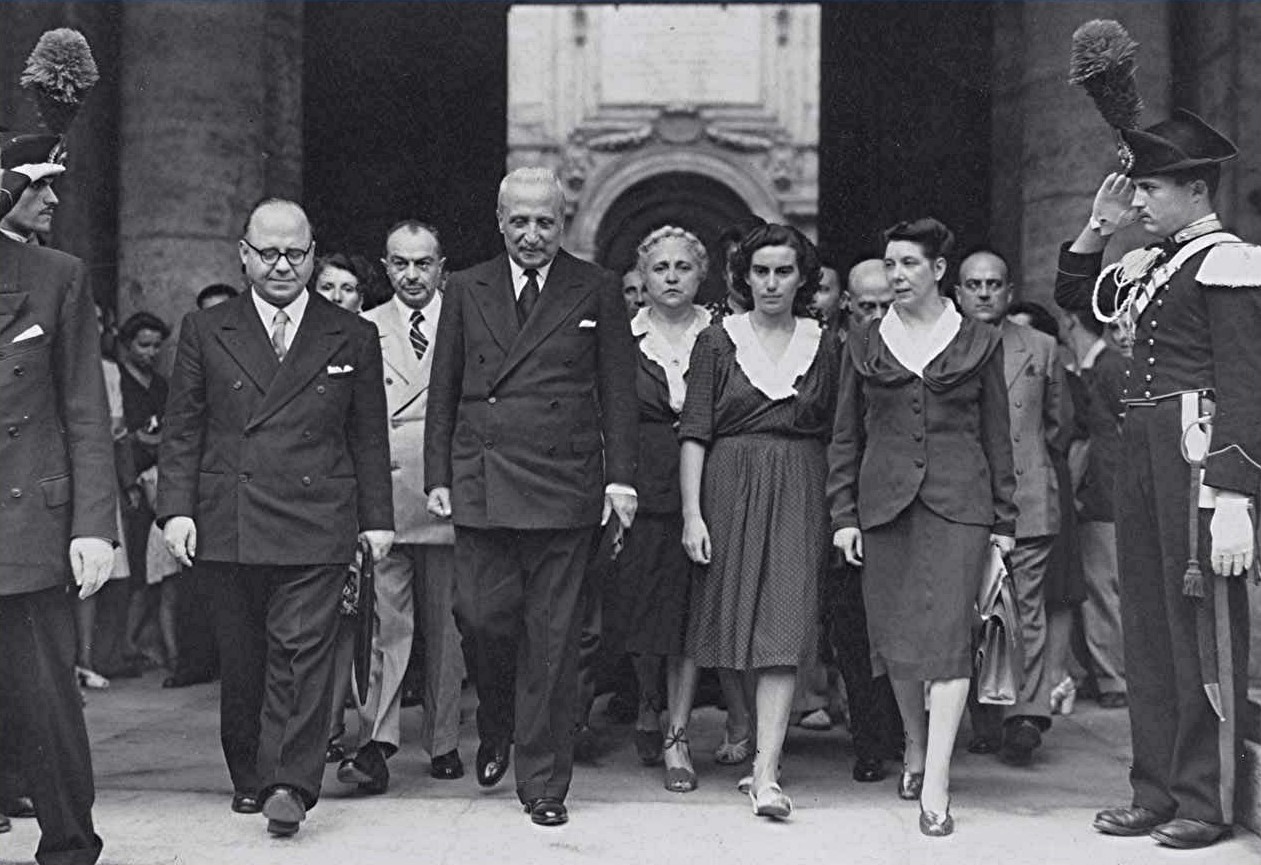L’Aquilana, Maria Agamben Federici (1899–1981) was a remarkable woman whose dedication to justice, equality, and democracy left a lasting impact on Italy.
Born in L’Aquila and of Armenian descent, she was a politician, anti-fascist, and partisan who played a crucial role in shaping Italy’s post-war society. Her unwavering commitment to the Resistance led her to be among the rare twenty-one women elected to the Italian Constituent Assembly on 2 June 1946. Twenty-one out of five hundred and fifty-six members! It was the first time in history that Italian women had been allowed to vote and stand as politicians. As a member of the Christian Democratic parliamentary group, she was part of the special commission tasked with drafting Italy’s Constitution. She focused particularly on economic and social rights, ensuring that the principles of justice and fairness were embedded in the foundation of the Republic.

She fought to have women recognised as “head of the family”, to have family support substantiated through economic and social guarantees, to have the rights of irregular families and children born out of wedlock recognised, to have education guaranteed to “poor kids”; to have equal pay recognised for equal work; to have working conditions respect the specificity of women in their family and maternal role, to have all prohibitions on women from holding offices and professions removed.
Sadly, despite such high ideals, in 2024, Italian women remain underpaid by €2,300 or receive 22% less than their male counterparts for the same employment and rank only 14th in the EU for gender equality and in addition:
- Italian women remain the least likely in the EU to have full-time employment, just 32% compared to 52% of men.
- Italian women experience the shortest expected duration of working life in the EU, nine years below the EU average (34 years for women and 39 years for men in 2022)
- Only 23% of women are employed in medium or senior management roles
- Just 21% of businesses are owned by women
- 72% of women are responsible for most daily household chores (cooking and/or unpaid housework), compared to only 34 % of men
Source: Gender Equality Index 2024, The European Institute for Gender Equality, World Bank, Statistica
Maria’s advocacy for women’s rights extended beyond the halls of parliament. In 1944, she co-founded the Italian Women’s Centre (CIF) and served as its president, tirelessly working to empower Italian women in the wake of World War II. Recognising the struggles faced by emigrant families, she established the National Association of Emigrant Families (ANFE) in 1947, leading it until 1981. Through her work, she championed policies that supported Italian citizens abroad, ensuring their homeland did not forget them. It was she who afirmed that emigration is not an individual problem, but a ‘family’ problem, secured recognition between European states for professional training qualifications, occupational diseases, the civil and political rights of compatriots, the schooling of the children of emigrants, the inclusion of the Italian language in schools abroad, the facilitation of the reunion of emigrant families, the recognition of the right to vote for Italians abroad. She was a founding member of Cidd (Italian Committee for the Moral and Social Defense of Women, which, at first, worked to abolish the state regulation of prostitution and, later, took charge of former prostitutes who wanted to change their lives, helping them with social reintegration.
Maria Agamben Federici was also a profound thinker and writer. In 1957, she published *Il cesto di lana*, an insightful essay in which she explored the evolving role of Italian women in the post-war period. Her reflections shed light on the challenges and opportunities for women seeking to rebuild their lives and assert their place in a rapidly changing society.
Her dedication to justice extended to the legal sphere, advocating for the role of women in the judiciary. The fight for gender equality in magistracy was a cause she supported, aligning with the broader movement that sought to break barriers for women in the legal profession. She fought strong and hard battles against the prejudice of presumed emotionality, lack of balance and incapacity that was believed to make women unsuitable as judges. Today, women are now the majority of professional magistrates, they sit on the Superior Council of the Magistracy and the Constitutional Court.
On this Women’s Day, we remember and celebrate Maria Agamben Federici—not just as a politician but as a pioneer for women’s rights, a champion of democracy, and a voice for the marginalised. Her legacy continues to inspire us to fight for equality, justice, and women’s empowerment everywhere.
















